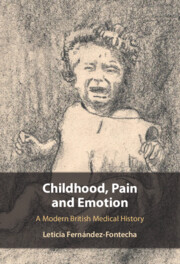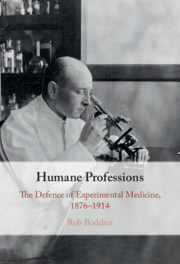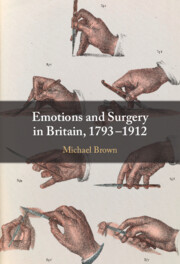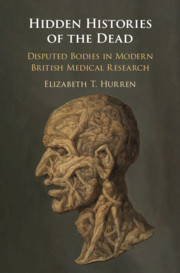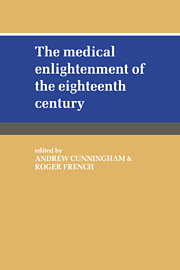Childhood, Pain and Emotion
Situated between the history of pain, history of childhood and history of emotions, this innovative work explores cultural understandings of children's pain, from the 1870s to the end of the Second World War. Focusing on British medical discourse, Leticia Fernández-Fontecha examines the relationship between the experience of pain and its social and medical perception, looking at how pain is felt, seen and performed in contexts such as the hospital, the war nursery and the asylum. By means of a comparative study of views in different disciplines – physiology, paediatrics, psychiatry, psychology and psychoanalysis – this work demonstrates the various ways in which the child in pain came to be perceived. This context is vital to understanding current practices and beliefs surrounding childhood pain, and the role that children play in the construction of adult worlds.
- Provides a detailed survey of medical rationales across multiple disciplines regarding infant and childhood pain
- Emphasises the significance of childhood experiences in shaping broader cultural frameworks
- Contextualizes current practices and beliefs
Reviews & endorsements
'A fine and important book. Through tangled threads of intellectual and medical history, Fernández-Fontecha finds a way to transform the ineffability of children's pain into a heart-rending presence.' Rob Boddice, author of Knowing Pain: A History of Sensation, Emotion, and Experience
'A stunning, intimate, and sometimes wincing story about pain as experienced by non-verbal infants. Absorbing and unique: it changes the way we think about infants as well as their suffering.' Joanna Bourke, author of The Story of Pain
Product details
No date availableAdobe eBook Reader
9781009558747
0 pages
Table of Contents
- Introduction
- 1. The language of children's pain
- 2. Infant pain Denial
- 3. Articulating mental pain
- 4. The nervous child
- 5. The pain of separation
- Conclusion
- Bibliography
- Index.

